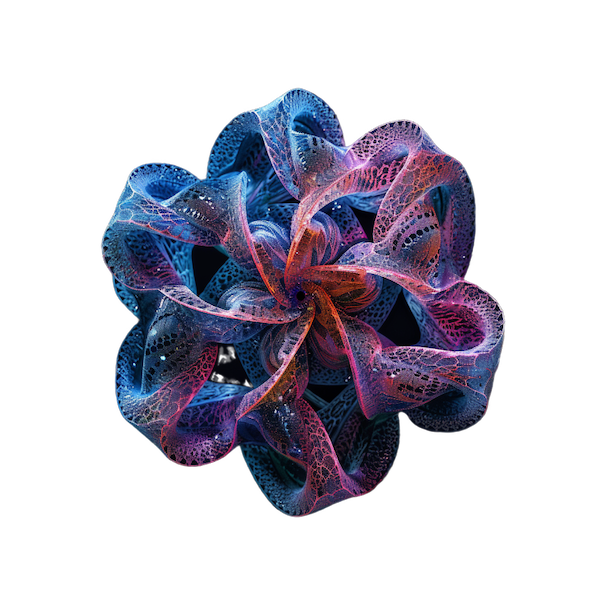
Promoting empathy for non-human neighbors by tracing ideological roots

Background
I'm an undergraduate student from Florida specializing in applied ecology, a lover of all life on earth, and an advocate for learning from our nonhuman neighbors. BLUE was recommended to me by Yves Abanda (Founder of Symbiosyn) who's very active in the B21 community. Immediately I was excited to conduct self guided research in an interdisciplinary exploratory format. My research has two directions. I'm curious to trace the ideological lineage of Descartes and his contemporaries, how this has influenced modern identity, and facilitated devastating social and environmental actions. I'd also like to stimulate empathy for other beings on earth by creating a framework in which participants can engage with their own ideology, identify harmful thinking, and change it.
Non-Human Neighbors: An exploration of our relationship to the bodies that environ us
It's no secret that our position in the web of life has become tenuous, not only for other species, but for ourselves. The primary focus of my (Chris Medary, idk what perspective to use here...) research over the course of the allotted eight weeks was on of identity, specifically for those of us living in WEIRD countries (Western Educated Industrialized Rich Democratic). In my opinion, it is how we view ourselves that enables our actions towards others and our environment.
To better understand the emergence of, and our adherence to harmful ideologies that define WEIRD identity, I attempted to uncover their roots. By tracing the ideological lineage I was able to uncover 'currents' or trends that have become amplified in the modern age. Some of these currents include: the view of humans as the 'most evolved', 'most advanced', or 'most intelligent' organism, modern adherence to convenience, and mechanistic views of non-human beings and the systems in which they (and we) are embedded. Although these were certainly the most hurtful and widespread 'currents' identified, there are a myriad of harmful actions, products, ideologies we engage with (knowingly or otherwise) many of which become salient depending on their context.
Because our role in these 'currents' is largely context dependent, and affect each of us in different ways and to varying degrees, it was paramount to avoid sweeping generalizations and finger pointing. Additionally, due to environmental issues typically being presented in a problem oriented manner, I thought it best to present my findings through conversation; an invitation to look inward. Indeed, I believe it is a change of heart and of mind that is needed to tackle the myriad of problems we will encounter over the coming decades. Empathy, forgiveness of ourselves and of others, as well as a united social, political, environmental, technological, and economic front is how we will build a beautiful future.

In conversation, participants and I explored these ideas through sharing our perceptions and experiences, and talked about concrete changes in lifestyle or ideology that could be helpful in closing the chasm we've created between us and our non-human neighbors. Some of the guiding questions of conversation were: How are we similar to other organisms? How are we different? Is this an important distinction? Why or why not? What are some of the ways we relate to other organisms? What does the nature of these interactions tell us about how we view ourselves, about how we view others, about what we value?
The BLUE fellowship was a once in a lifetime opportunity for me to explore some of the interdisciplinary questions I pursue outside of the formal academic setting. I am incredibly grateful to have been accepted and be included in such a loving, open, and curious community. I encourage anyone who is passionate and curious about a topic to apply to BLUE as it is a genuine platform for exploration, an eye-opening experience that rejuvenates a romantic and inspiring academic approach without sacrificing rigor.
.svg)




